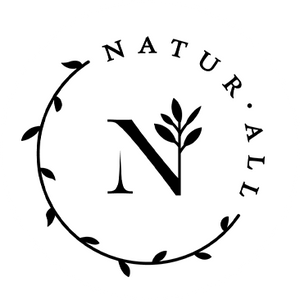
BREAKAGE. What a painful word and a painful sound. Whether you see it, feel it, or hear it, breakage is all around us. It happens when you put your hair up, when you take your hair down, when you wash, condition, and detangle, it happens in the car, on the bus, in the office, at the table, on the couch. We all know the feeling of getting up from a chair and hearing your hairs snap.

Like everyone, we at NaturAll Club dream of a world without breakage. But in the meantime, we have this guide with some simple tips for avoiding it. Some are intuitive, but others might be surprising!
What is Breakage?
As you probably know, "breakage" describes what happens when a hair strand snaps under tension that it can’t withstand. You lose part of the length of that strand, with part of the strand remaining on your scalp. You can easily distinguish breakage from hair loss or shedding, because broken hairs will be shorter than the normal length of your hair. They will also lack the small white bulb on the end of the hair, which is characteristic of normal shedding.
Is Hair Breakage Normal?
Let’s get one thing straight: breakage isn’t good, but it is unavoidable. As long as you are waking up in the morning, going outside, and living your life, it will come at a cost to a few of your hairs. Don’t cry over them. The broken hairs will continue to grow, and you still have so many strands that are fine.

However, breakage can (and should) be minimized. There are two underlying causes of breakage. The first is low elasticity: when your hair isn’t stretchy or elastic, it breaks easily under tension. The second is environmental stress: anything you or the environment around you does to put tension on your hair in the first place.

You can reduce breakage by improving elasticity OR by reducing environmental stress on your hair, but for the best results, you should address both parts of the equation. Here are NaturAll Club’s key tips to reducing breakage.
How to Stop Your Natural Hair From Breaking
In order to reduce breakage, you need to reduce environmental stress on your hair. Here are some tips to fix breakage.
- BE GENTLE. High manipulation styles, excessive touching, combing, and even weather can cause breakage. Use low manipulation or protective styles to give your hair a break from styles and environments that can cause breakage. Use gentle wide-toothed combs for detangling, and adopt a nightly routine that is gentle on your hair through the night.
- DON’T TOWEL-DRY. Towel material snags and pulls on your hair and is especially harmful on curly hair. You’ll see your breakage drop significantly once you switch over to using a microfiber towel to dry off your hair when you get out of the shower (even a cotton t-shirt will cause less breakage than a regular bathroom towel.)
- DETANGLE. You might be tempted to avoid detangling because you've noticed combs (and even your fingers) causing breakage. Detangling can cause breakage, especially if you tug too hard or detangle when your hair is dry. However, if you don’t detangle often enough, your tangles will get worse and cause much more breakage when you finally do detangle. As long as you comb slowly, patiently, and regularly, your hair will thank you.
- DON’T DETANGLE DRY...OR SOPPING WET. Hair is least elastic when it’s dry, but most fragile when it’s sopping wet. Avoid combing or detangling when your hair is in either state, because detangling puts tension on your hair and makes it vulnerable to breakage. We recommend combing or detangling your hair when it is damp.
- REDUCE HEAT. Heat sucks the moisture out of your hair, making it more susceptible to breakage.
- MOISTURIZE. Dry hair is less elastic and more brittle. Use a daily moisturizer and seal moisture in your hair with an oil, like Jamaican Black Castor Oil Growth Serum to retain moisture through the day.
- NOURISH. Undernourished hair is less elastic and breaks more easily. Make sure your hair gets the protein and nutrients it needs to stay strong. For some naturals with weaker hair, protein treatments are a good way to keep your hair nourished, but you also need to eat healthy, nutritious foods to keep your hair (and your body) healthy.
- AVOID TOXIC INGREDIENTS Most hair products contain damaging ingredients that dry out your hair and make it less elastic. Review our list of ingredients to avoid, and opt for products you can trust (natural oils, Shea butter, honey, apple cider vinegar, avocados).
- SEAL ENDS. Your ends are the oldest and most vulnerable part of your hair. Give them special attention with moisture, and use an oil like our Jamaican Black Castor Oil Growth Serum to seal ends when you twist or curl your hair.
- DEEP CONDITION. A bi-weekly deep conditioning treatment will provide moisture and nutrients to your hair, improving the strength and elasticity of your hair. There is no better way to prevent and reduce breakage! Shop our all natural Fresh Frozé Treatment Deep Conditioners- they are all great for reducing breakage!
Is your hair breaking and thinning?
Breakage is normal, but if you are experiencing severe breakage, and hair loss, you will need a more serious solution. These tips are a great start. To find out what to do about hair loss and alopecia. check out this guide to preventing hair loss.











